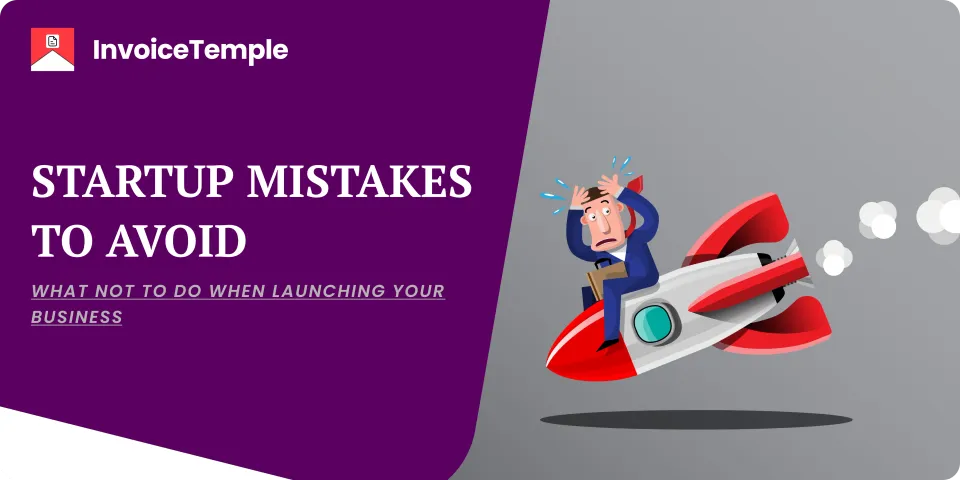What Not to Do When Launching Your Startup

Launching a startup is the aim of many skilled professionals and graduates. They’ll start it with perfect and unique ideas, implement all the strategies, and run the company. But within a few days, the startup drops down and fails. What will be the reason for this?
It’s because of some of the major mistakes they made. Mistakes are common when starting a business, but being aware of them can help you avoid them. This blog lists the mistakes that you must avoid while launching your startup. Continue to read.
The professionals who start a new business won’t have experience in the business implementation process. Completing each step will be a new experience, and they’ll learn from their mistakes. However, avoiding certain mistakes is crucial, as they can unintentionally destroy your business plan and dreams.
Top Mistakes That Every Startup Should Avoid
1. Lacking in Creating a Business Plan
The initial process for launching a startup is creating a perfect business plan. This business plan outlines the intent to do it, the plan to do it, when to start, and the goals to achieve. This business plan may sometimes attract investors and shareholders towards the business. But if a business plan is not generated, it may become a reason for the startup to fail.
2. Borrowing Money When Not Needed
Every startup business owner does not have enough funds to launch the business. At the initial stages, they may approach banks or other funding sources. This is the crucial time where the business owners must stay careful because many of them borrow huge amounts that exceed their needs and struggle to repay them.
3. Not Analyzing Other Founders’ Experiences
Numerous businesspeople in this world have started their journey from zero and have built a business empire. Asking for suggestions and ideas from them will give an idea about how to manage the startup business. But if the business owner behaves as though they know everything, more than the experienced person, it could result in a loss for their startup.
4. Providing the Products or Services for Too Low a Price
Some startup owners plan to sell their products or services by offering the lowest prices so that many clients can be gained. But the reality is, offering too low prices can reduce the image and the business standard. If a business has reached a standard and then it offers the lowest prices as discounts, it is different. But offering too low a price at the initial stages itself does not create a good impression, and cash flow problems will also be caused.
5. Mistakes in Hiring Process
Some hire people with zero knowledge in the field, and some hire extra numbers with the aim of attaining success. But hiring too many people will increase the expense of the business, but not always the business productivity. So, while hiring, at the initial stages, consider hiring the right number of people.
6. Not Managing the Business Accounts Properly
While managing the business accounts, some startup owners use the manual process, which is prone to errors. In this situation, advanced technologies like online accounting software can be used. Also, some never maintain separate accounts for business alone. They combine both the personal and business accounts, which does not give a clear view of the financial stability of the business.
7. Not Responding to Clients
Some business owners do not consider the feedback suggested by the clients. But listening to the client’s suggestions and making necessary changes at the initial stages of the business is advisable for the startup owners.
8. Displaying Unprofessional Conduct
Most of the clients opt for businesses that maintain professionalism in their work, from their production process to their invoicing process. When the work delivered by the business is messy and unprofessional, then the clients may avoid that business. For example, using a manual invoicing process showcases the business in an unprofessional format. But using online invoicing software for small business reflects professional outlines for the business.
These are some of the major mistakes that a startup must avoid. So, analyze all these key points and avoid these mistakes in your startup business.
